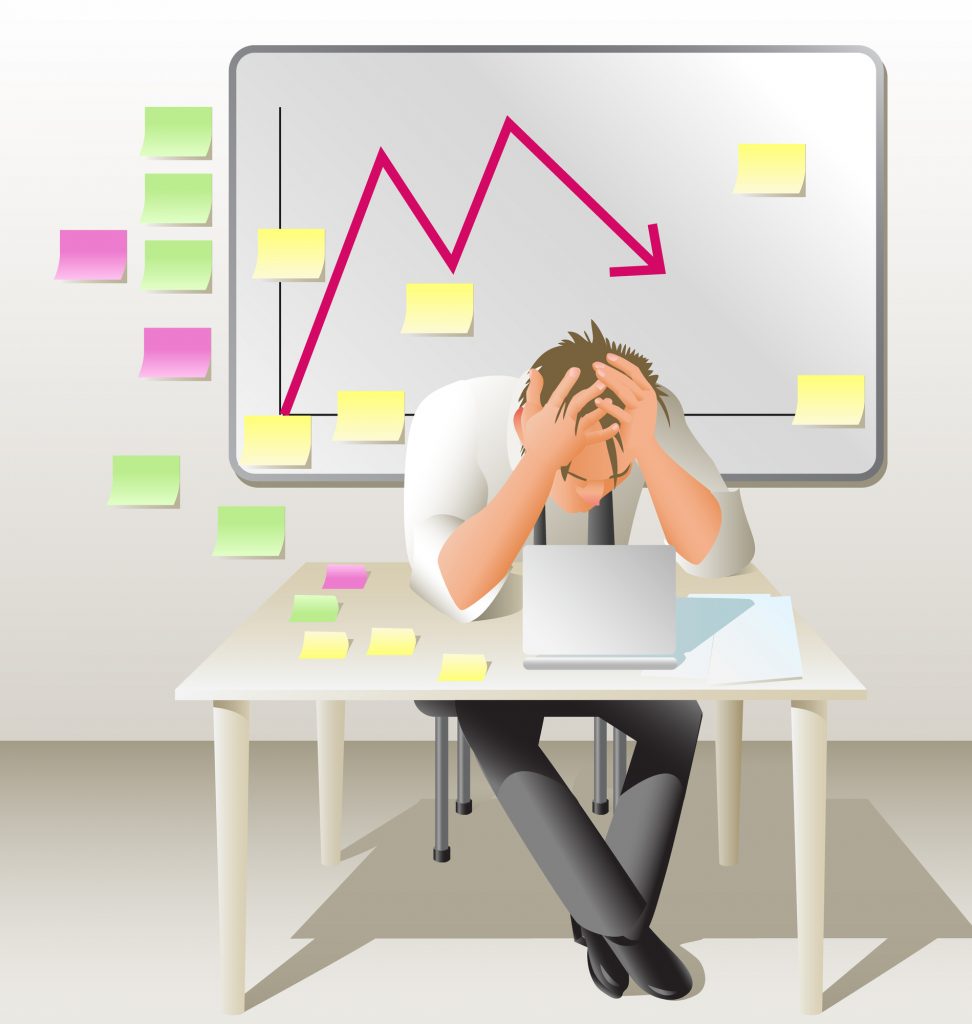 Bankruptcy is a legal process in which a federal court oversees a debtor’s settlements with creditors. Depending on the type of bankruptcy, a business may continue to operate and reemerge without old debts, in other words, gain a fresh start. The number of business bankruptcy filings had declined annually through 2019, but this is 2020 and the pandemic has taken its toll. No one knows how many businesses will choose or be forced to file for bankruptcy protection. If your business is struggling financially, be sure to understand what bankruptcy means and whether you have better alternatives.
Bankruptcy is a legal process in which a federal court oversees a debtor’s settlements with creditors. Depending on the type of bankruptcy, a business may continue to operate and reemerge without old debts, in other words, gain a fresh start. The number of business bankruptcy filings had declined annually through 2019, but this is 2020 and the pandemic has taken its toll. No one knows how many businesses will choose or be forced to file for bankruptcy protection. If your business is struggling financially, be sure to understand what bankruptcy means and whether you have better alternatives.
Types of bankruptcy
Depending on your entity type (e.g., sole proprietorship, corporation) and whether you want to continue operations, there are different types of bankruptcy:
- Chapter 7. This type is a “liquidation.” This option can be used by individuals (who meet a means test and aren’t required to use Chapter 13) and businesses. After completion, the business no longer exists. For individuals, debts that are dischargeable (not all can be wiped out) and some property (“exempt” property) continues to belong to the debtor.
- Chapter 11. This is a “reorganization.” It is used by businesses that want to continue to exist. Some of the most recent big businesses to file for this bankruptcy protection as J.C. Penney, J. Crew, Hertz, and Neiman Marcus. Chapter 11 is not as viable for small businesses because of its inherent legal costs.
- Chapter 12. This is a special bankruptcy option for family farmers and family fishermen. Debts are capped for this option, so large farming and fishing corporations can’t use it.
- Chapter 13. This is a repayment plan for individuals. Depending on income and circumstances, the court requires repayments for a certain period but once completed, any outstanding debt that can be, is discharged. Certain debt, such as student loans, child support, and certain taxes are not dischargeable in bankruptcy.
Sole proprietors are treated as individuals, not businesses, for purposes of bankruptcy protection. The treatment of single-member LLCs is more complex when the owner is seeking protection only for the business and not for personal assets. Since the vast majority of small business debts are personally guaranteed, a business bankruptcy filing will not protect you personally.
Debt repayment plans
Instead of filing for bankruptcy, a business may be able to settle debts with creditors without court supervision.
- DIY. You may be able to negotiate directly with your creditors –your landlord, vendors, and banks — to obtain relief sufficient to keep you going. This may be a reduction in what you owe or more time to pay. During this pandemic, many creditors are willing to negotiate because they’d prefer to have you stay in existence so they can continue to do business with you in the future. For example, some landlords have reduced or waived rent for a certain period (e.g., 3 months) because they want the businesses to remain as long-term tenants, and this financial assistance can be meaningful assistance toward that goal. If you are considering negotiating your debts on your own, there’s a free guide to help.
- Get professional help. Instead of doing it yourself, professional assistance is available. For example, Corporate Turnaround helps businesses that have severe cash flow issues renegotiate more affordable payment terms with their creditors. Their plan is designed to use as little cash flow as possible to get small businesses out of the financial “jam” they’re in. This repayment plan reduces payments and interest to creditors and may reduce debts as well. The process typically costs less than bankruptcy. Unfortunately, due to the pandemic, some business models may no longer be viable and it’s foolhardy to try and rescue the company.
Working with an attorney
If you are concerned about your company’s future, it’s essential to meet with a bankruptcy attorney to learn about your options. Yes, it’s going to cost you something for this advice, but it could save you money…and your business…in the long run.
Resources
Before you take any steps, be sure to understand what bankruptcy means. Here are some resources to help:
- Debt.org’s What Happens When You File Bankruptcy?
- IRS’s Bankruptcy Tax Guide
- U.S. Courts’ About Bankruptcy
Final thought
Gordon Bethune, former CEO of Continental Airlines, said “a bankruptcy judge can fix your balance sheet, but he cannot fix your company.”


